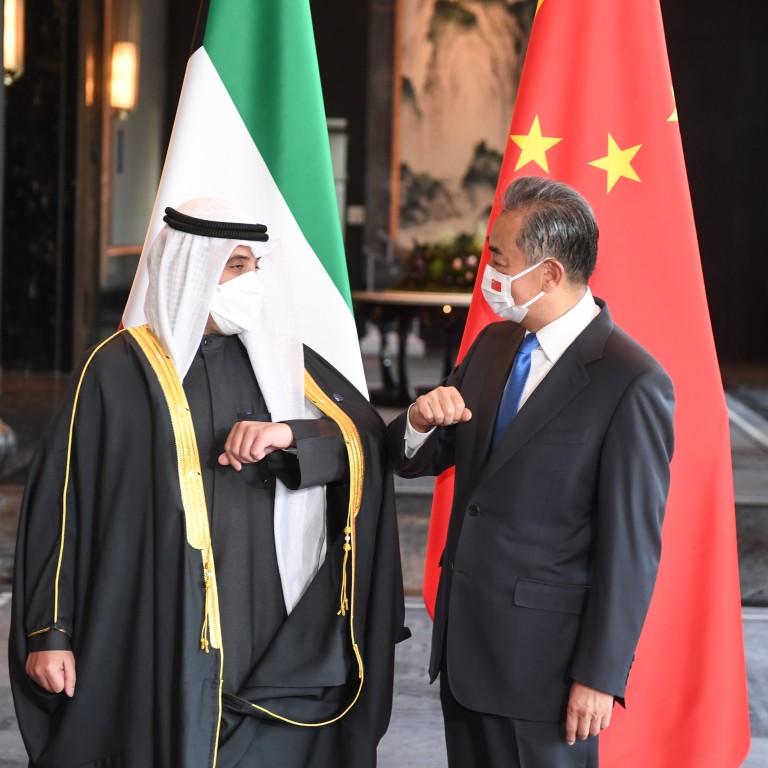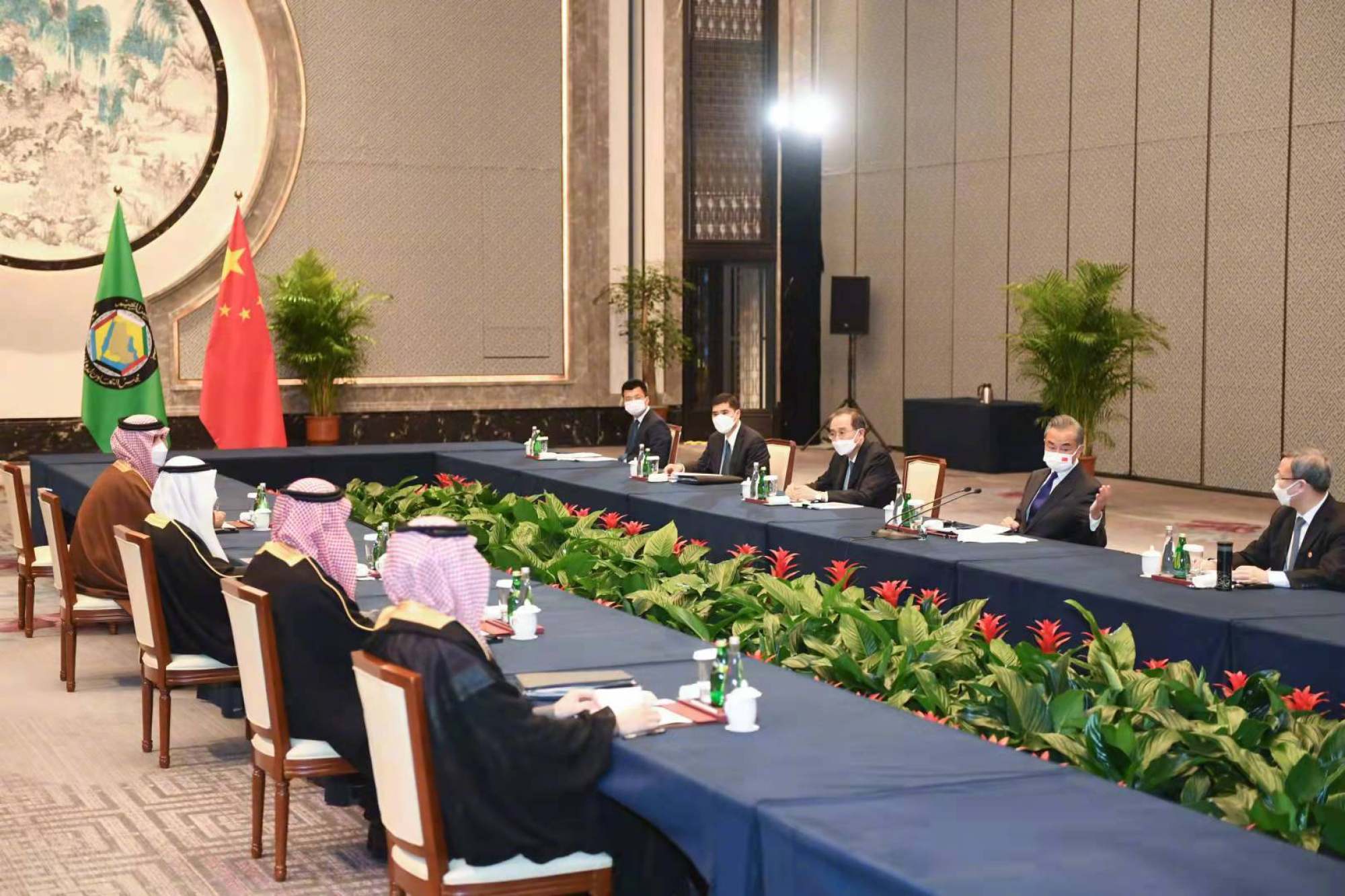
China’s Middle East strategy stays focused on economic relations
- Recent talks with the Gulf States and Turkey helped boost economic ties, but saw little change in strategic and security matters
- While China hopes to increase its role in the region, it faces opposition from the US, which remains a key player
Foreign Minister Wang Yi hosted a series of meetings with his counterparts from the Gulf Cooperation Council and four of its six member states, agreeing to accelerate the process of upgrading relations to a strategic partnership and signing a free-trade agreement.
“The most important outcome of the visit between China and the GCC countries was economic,” Yin Gang, a researcher in the Middle East with the Chinese Academy of Social Sciences, said.
Wang met foreign ministers from Saudi Arabia, Kuwait, Oman and Bahrain, agreeing to closer cooperation on trade and cultural exchanges.
Wang also held a phone conference on Thursday with his counterpart from another GCC member, the United Arab Emirates, underlining their common interests.
China meets Gulf oil bloc with sights set on trade deal, energy security
“Apart from specific interests – oil, gas, and hi-tech investments – on a grand strategic scale, China needs stability in this volatile region,” said Zeno Leoni, an affiliate to the Lau China Institute at King’s College London.
“The fact that diplomats from the GCC, Iran and Turkey will be there all at the same time, might be for China to emphasise that it values each of its relations with each regional power and that it hopes to continue to have an equidistant and productive relationship with each of them despite intraregional tensions.”
Jonathan Fulton, an associate professor at Zayed University in the UAE, said the biggest challenge in the Middle East for China was the US, which had deep existing political and security alliances and partnerships throughout the region.
“Middle East and North Africa states are keen to engage with China on several fronts but not at the risk of damaging their relationships with Washington,” he said.
“Unless China is able to offer the same kind of commitments – and thus far it hasn’t been – then there’s a ceiling for its regional presence.”
The US has a heavy security presence in the region with forces stationed in Qatar, Bahrain, Kuwait, the UAE, Saudi Arabia, Iraq and in the greater Gulf.

But Yan Wei, deputy director at the Institute of Middle Eastern studies at China’s Northwest University, warned: “There are limits to the involvement of external forces, including China, and their ability to solve the Middle East problem because of its complexity.”
China will one day face the challenge of remaining “neutral” in the region as its influence grows, according to Yahia Zoubir, a France-based fellow at the Middle East Council on Global Affairs.
“It might create a new challenge for China, because many countries in [the Middle East and North Africa] are asking China to play a bigger role in security,” he said. “There will be situations where China needs to be more forthcoming in terms of its position, the country’s neutral strategy will be challenged in the longer run.”
China has repeatedly offered to “contribute to peace and development in the Middle East”, but there is little to show from this so far.
Saudi coalition accuses Yemeni rebels of militarising seaports
During Wang’s tour of the Middle East last year, he offered to support nuclear non-proliferation, collective security and economic diversification. He also offered to host peace talks between the Israelis and the Palestinians.
But Zoubir said the Middle East was not an urgent security concern for China, which also wanted to avoid the impression of being “an expansionist power”.
Wang Jin, an associate professor at the Institute of Middle East studies at China’s Northwest University, said the US was pressuring its allies in the region to keep their distance from China.
Iran fires ballistic missiles during war games in warning to Israel
“[In the] long term, I imagine Beijing’s goal is to integrate the region more deeply into its orbit, using the belt and road and digital silk road to deepen cooperation on a wide range of issues that support China’s preferences for a less US or European-dominated international order.”


